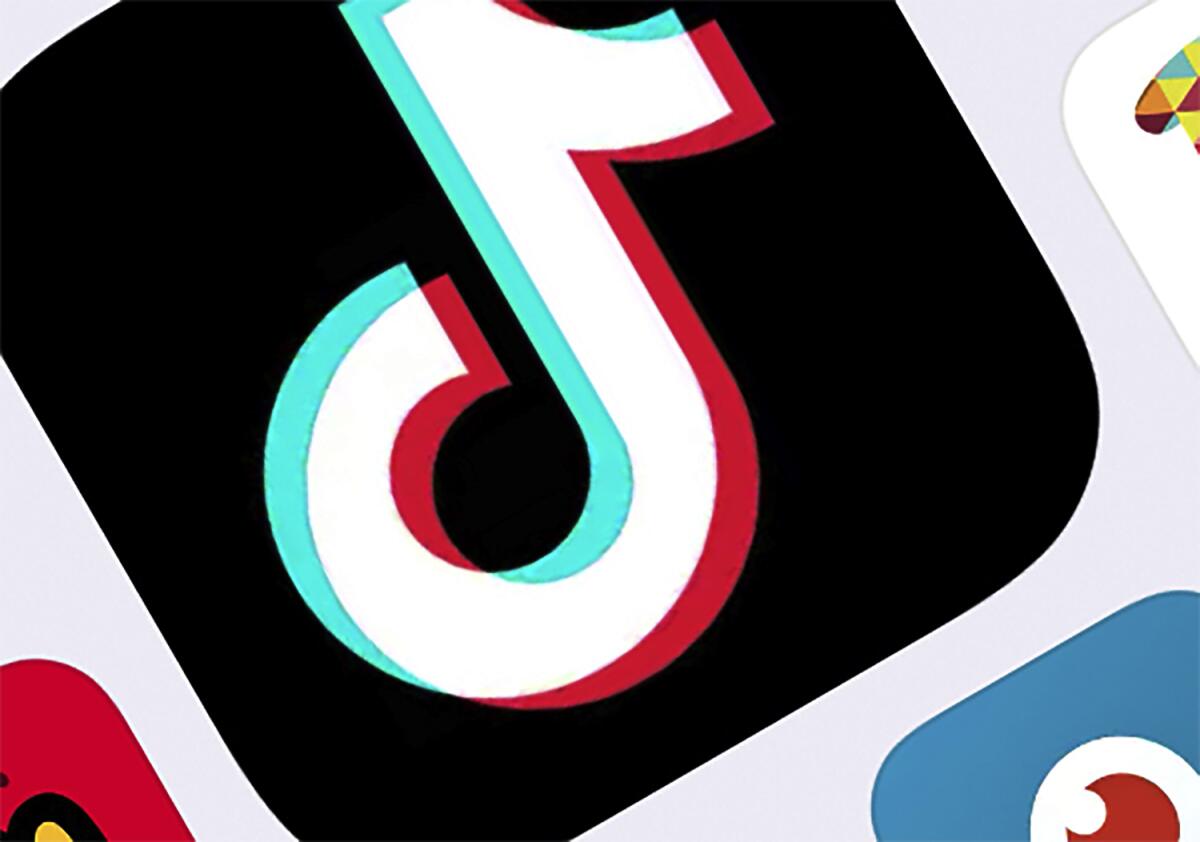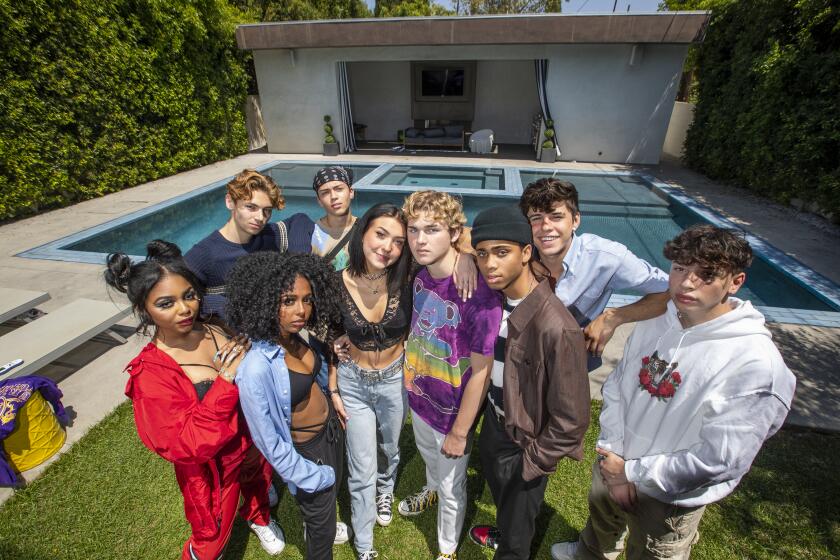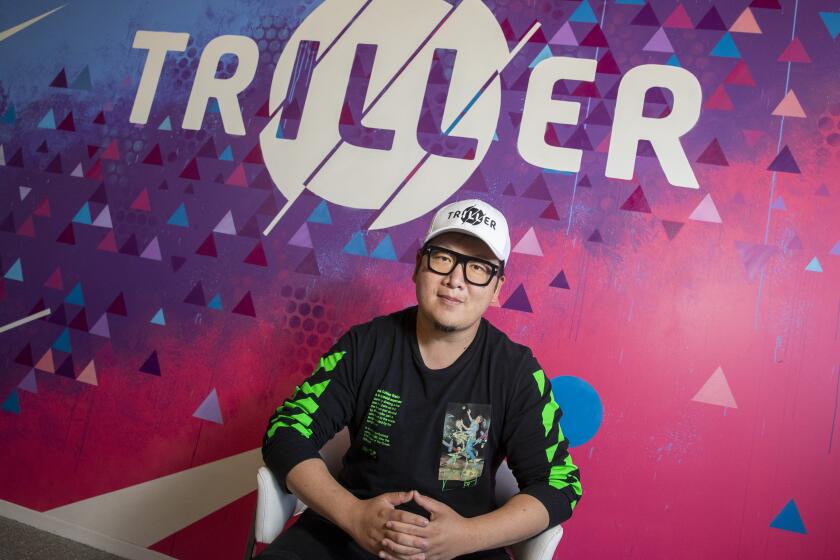Judge pauses Trump’s plans to remove TikTok from app stores

TikTok on Sunday won a significant victory against the Trump administration, when a federal judge ruled in favor of the tech company’s request to delay a ban on the app.
Under the ruling, TikTok will remain available in U.S. mobile app stores and can continue to provide software updates. The company filed a lawsuit this month in Washington, D.C., saying that the administration’s effort to stop new downloads of the app starting Sept. 27 was unconstitutional and could harm its business.
“TikTok is a modern-day version of a town square,” the company’s attorney, John Hall, said at a hearing Sunday. Pulling TikTok from the app stores “would be no different than the government locking the doors to a public forum,” Hall added.
The popular social video app has been under scrutiny by Trump, who has expressed concerns that TikTok, whose parent company ByteDance is based in China, could be giving U.S. user information to the Chinese government. TikTok says it has not done so and that its U.S. user information is stored in Virginia and backed up in Singapore.
The judge’s ruling offers ByteDance some breathing room as the company continues working on a deal to give partial ownership to U.S. partners to satisfy the security issues raised by Trump by Nov. 12 or risk getting banned in the country. The judge did not offer an extension of the Nov. 12 deadline in his order Sunday.
At stake is TikTok’s massive global success and its footprint in L.A.’s entertainment industry with popular video creators making tens of thousands of dollars each month in brand deals in return for marketing products to their millions of fans.
The directive to remove TikTok from U.S. mobile app stores came from the Commerce Department after an executive order signed by the president Aug. 6.
“The concern here is data security risk and leaving data vulnerable to access from the Chinese government,” Daniel Schwei, an attorney for the Justice Department, said in a hearing Sunday. “This is the most immediate national security threat.”
But TikTok on Sunday successfully persuaded a federal judge to grant a preliminary injunction barring the Commerce Department’s prohibition on the app. The company argued that the directive, which would have taken effect midnight Monday, violated TikTok’s constitutional rights for free speech and due process.
It also argued that blocking TikTok software updates, including ones related to security, could put users’ personal information at risk.
“We will continue defending our rights for the benefit of our community and employees,” TikTok said in a statement Sunday. “At the same time, we will also maintain our ongoing dialogue with the government to turn our proposal, which the president gave his preliminary approval to last weekend, into an agreement.”
The Commerce Department in a statement said it will comply with the injunction but plans to legally defend Trump’s executive order.
ByteDance is continuing to work on a deal to address Trump’s security concerns. An early version of the agreement would create a new company called TikTok Global, giving Silicon Valley software company Oracle and Arkansas retailer Walmart 20% ownership. Oracle would run TikTok Global on Oracle Cloud and TikTok Global would be based in the U.S.. Last weekend, Trump said he approved the deal in concept, raising hope among TikTok supporters that a ban on the app could be averted.
Trump approved in concept a deal where Oracle and Walmart would own part of TikTok Global.
But any deal would need the Chinese government’s approval, and state-run media outlets have already expressed their disapproval.
“ByteDance has become the victim of a shakedown in which its prized possession is being seized and exchanged for favors done and to come,” China Daily wrote in an editorial that also notes Oracle’s close ties with Trump. Oracle co-founder Larry Ellison hosted a fundraiser for Trump and is a supporter of the president’s.
“The White House has been using this issue as showing force of the stance towards China and if this is put through before the election, it will be considered as an achievement of the (Trump) administration,” said Yun Zhu, an associate professor of finance at the Peter J. Tobin College of Business at St. John’s University. “It doesn’t give China any leverage in discussing this issue further, so I think China will not let that deal happen so easily.”
Some U.S. lawmakers including Sen. Marco Rubio (R-Fla.) have also expressed concern over whether the deal would still give China some control over TikTok.
L.A.’s TikTok creators earn thousands of dollars a month. Trump’s threat of a potential ban has them concerned.
If a deal is not closed by Nov. 12, the Commerce Department will take more punitive action, including barring U.S. businesses such as content delivery networks from working with TikTok, essentially crippling its ability to function.
In August, TikTok lost $10 million in revenue and about a dozen brands have canceled or delayed their plans to advertise on the app, interim head Vanessa Pappas said in a declaration filed in federal court.
The app also is in danger of losing its creators and users to rival services. TikTok had grown exponentially, especially during the pandemic, as people looked for new ways to entertain themselves as they sheltered at home. TikTok said it had nearly 689.2 million global active users this July, up from roughly 55 million in January 2018.
“For TikTok to remain competitive, continued growth at this stage in our development is critical,” Pappas said in her declaration. “New users are the lifeblood of a social media application like TikTok; without new users, we cannot compete with other platforms.”
Triller, an L.A.-based video app, has received a big boost from security concerns and political churn around the blockbuster app TikTok.
Pappas said that if TikTok were to be banned in the U.S. entirely on Nov. 12 for six months, the company predicts that 80% to 90% of its daily active users will not return.
This month three TikTok creators, including USC student Cosette Rinab, also filed a lawsuit in federal court in Pennsylvania, arguing that a ban would violate their 1st Amendment rights. On Saturday, a judge denied the creators’ request for a temporary restraining order.
It’s unclear what will happen next.
“This really seems like the most epic soap opera I’ve ever seen, and I can’t really figure out what the ending is going to be,” said Rich Greenfield, a partner at research firm LightShed Partners. “Every time we think there’s clear visibility and what’s about to happen, it all disappears.”
Times staff researcher Scott Wilson contributed to this report.
More to Read
Inside the business of entertainment
The Wide Shot brings you news, analysis and insights on everything from streaming wars to production — and what it all means for the future.
You may occasionally receive promotional content from the Los Angeles Times.












